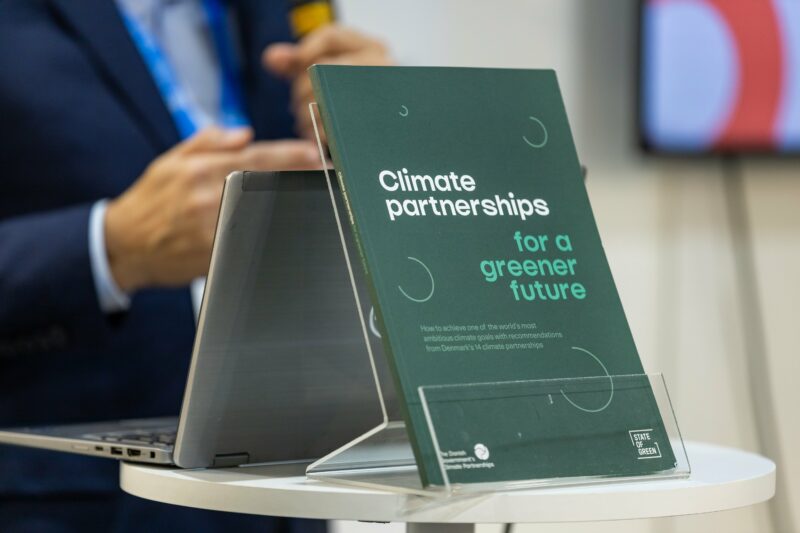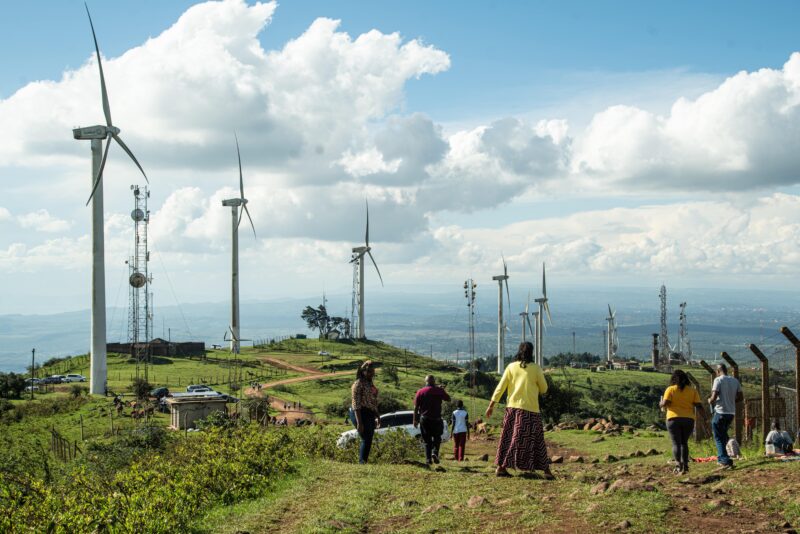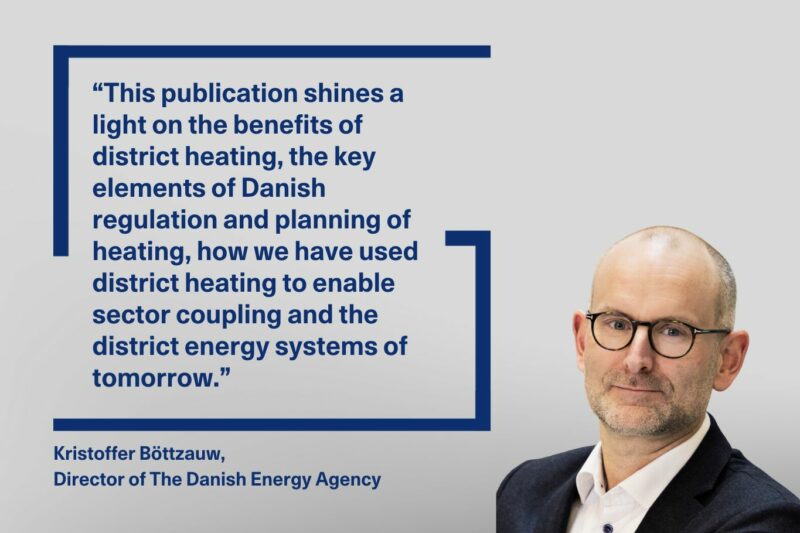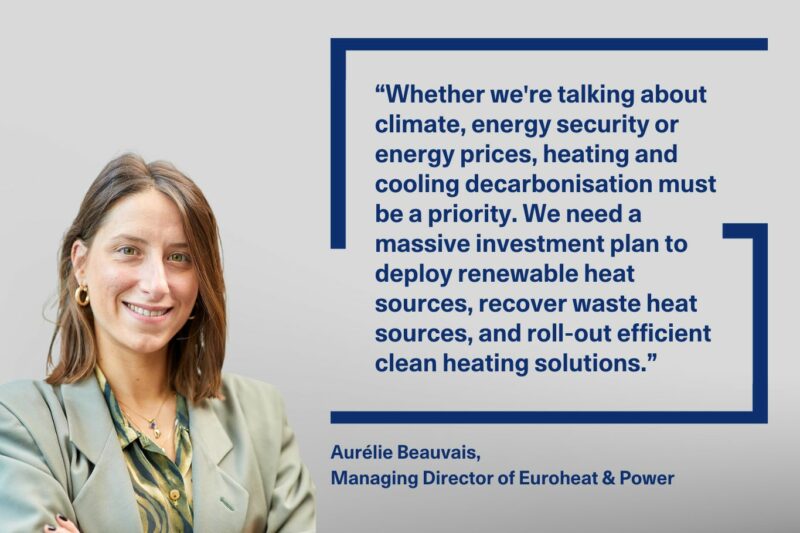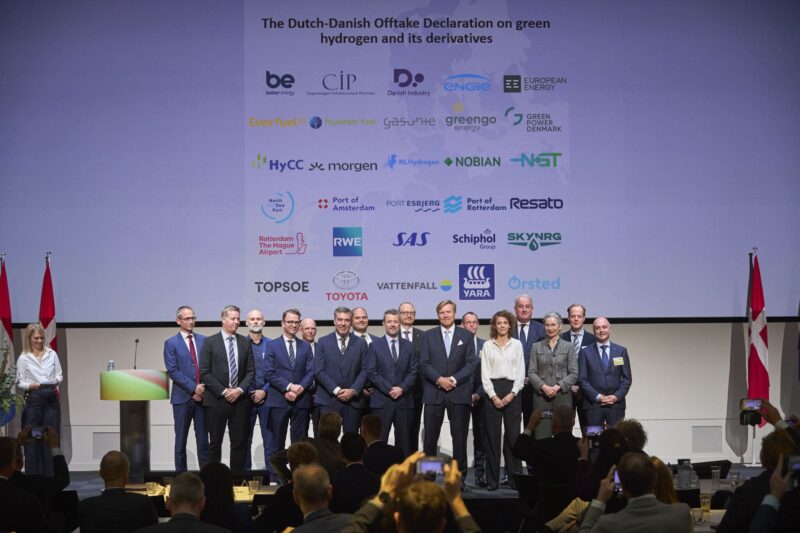News
Climate COP
Climate partnerships
Partnerships
COP29: Relive highlights from the Denmark Pavilion in Baku
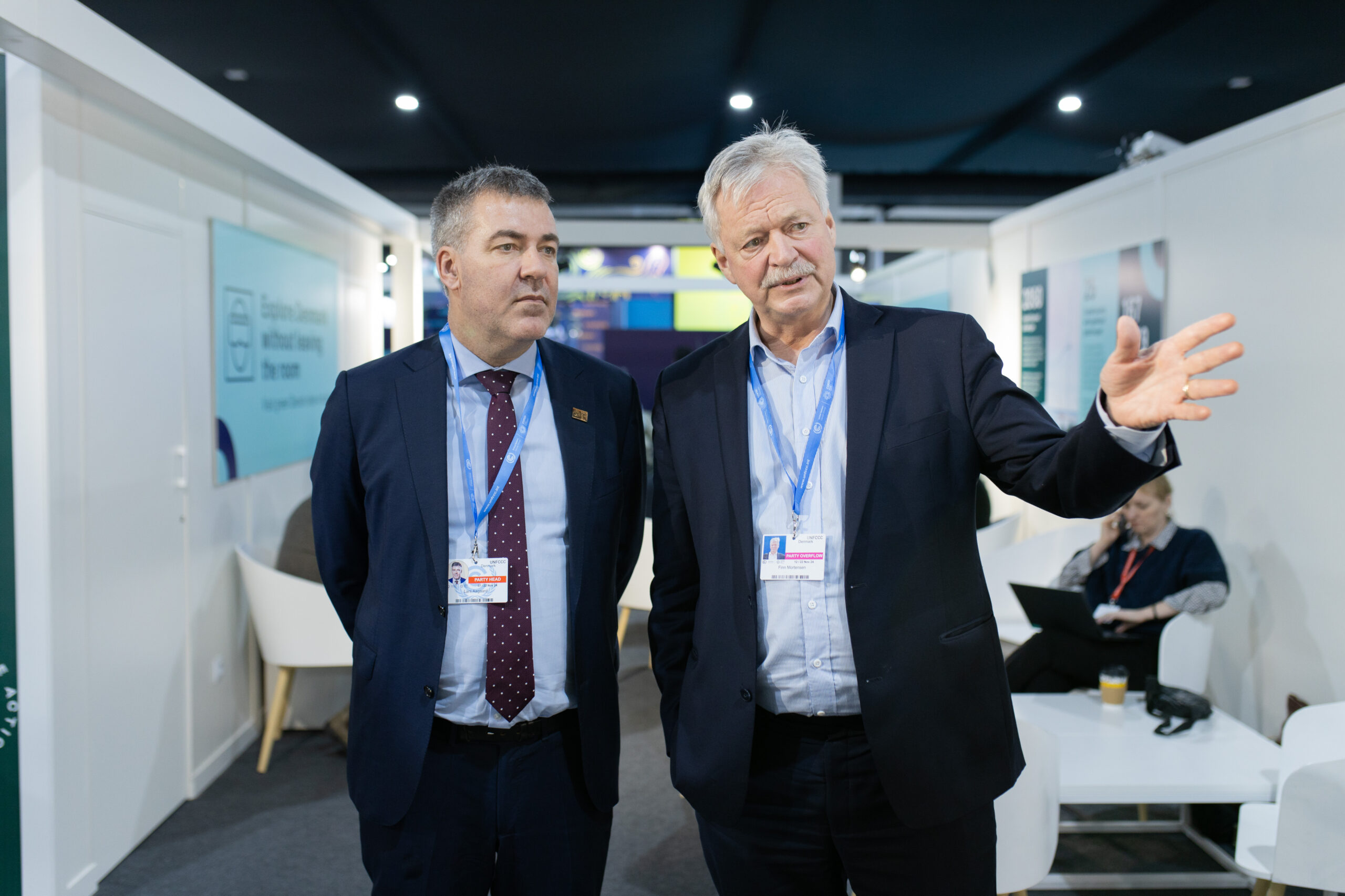

As COP29 is coming to an end, partners, participants and organisers from the Denmark Pavillion can look back on 10 action-packed days from the heart of the COP Blue Zone. This year, the Pavilion hosted 31 partners spanning the public and private sectors, representing the pavilion’s seven focus areas: clean energy, energy efficiency, energy distribution and integration, green finance, cities, decarbonising hard-to-abate sectors, and food and agriculture.
The underlying theme of the Denmark Pavilion, public-private partnership was truly evident in the pavilion’s long list of events, which included more than 100 speakers from both the public and private sectors.
The Denmark Pavilion was visited by several Ministers and other decision-makers during COP29. From the Danish side, Denmark’s Prime Minister Mette Frederiksen participated in the opening of the conference — sending a strong signal of Denmark’s commitment to global climate action, especially as many heads of state opted not to attend this year’s climate summit. Later in the second week, Minister for Climate, Energy, and Utilities Lars Aagaard arrived at COP29 ready for the final negotiations. Aagaard visited the Denmark pavilion with fresh news of the historic tripartite agreement, which was sealed by a majority in the Danish parliament earlier this week. The agreement is set to introduce the world’s first carbon emission tax for the agricultural sector.
While only two Danish ministers attended COP29, their presence was impactful. Prime Minister Mette Frederiksen participated in the opening of the conference—a strong signal of Denmark’s commitment to global climate action, especially as many Heads of State opted not to attend. Later in the second week, Minister for Climate, Energy, and Utilities Lars Aagaard brought news of the tripartite agreement to Baku, proudly representing Denmark’s proactive approach to achieving international climate goals.
Breaking down silos
One of the Pavilion´s first events, Breaking down silos: integrating climate, biodiversity and plastic pollution to prevent disastrous spillover effects, focused on the new tripartite agreement, which at the time was yet to be finalised. The event discussed the importance of breaking down siloed approaches in government and moving towards a more integrated system within the UN with Denmark as a pioneering example, especially in the light of the new agreement. It was hosted by Denmark’s Youth Delegates to the UN on Climate & Environment, Lise Coermann Nygaard and Sigurd Seindal Krabbe, on Tuesday 12 November and the speakers included Irene Anena, ACT Alliance Coordinator at DanChurchAid in Uganda, Jenny Brunton, Senior European Policy Advisor at the British Agricultural Bureau (BAB) and Peter Møllgaard, Chair of the Danish Council on Climate Change.
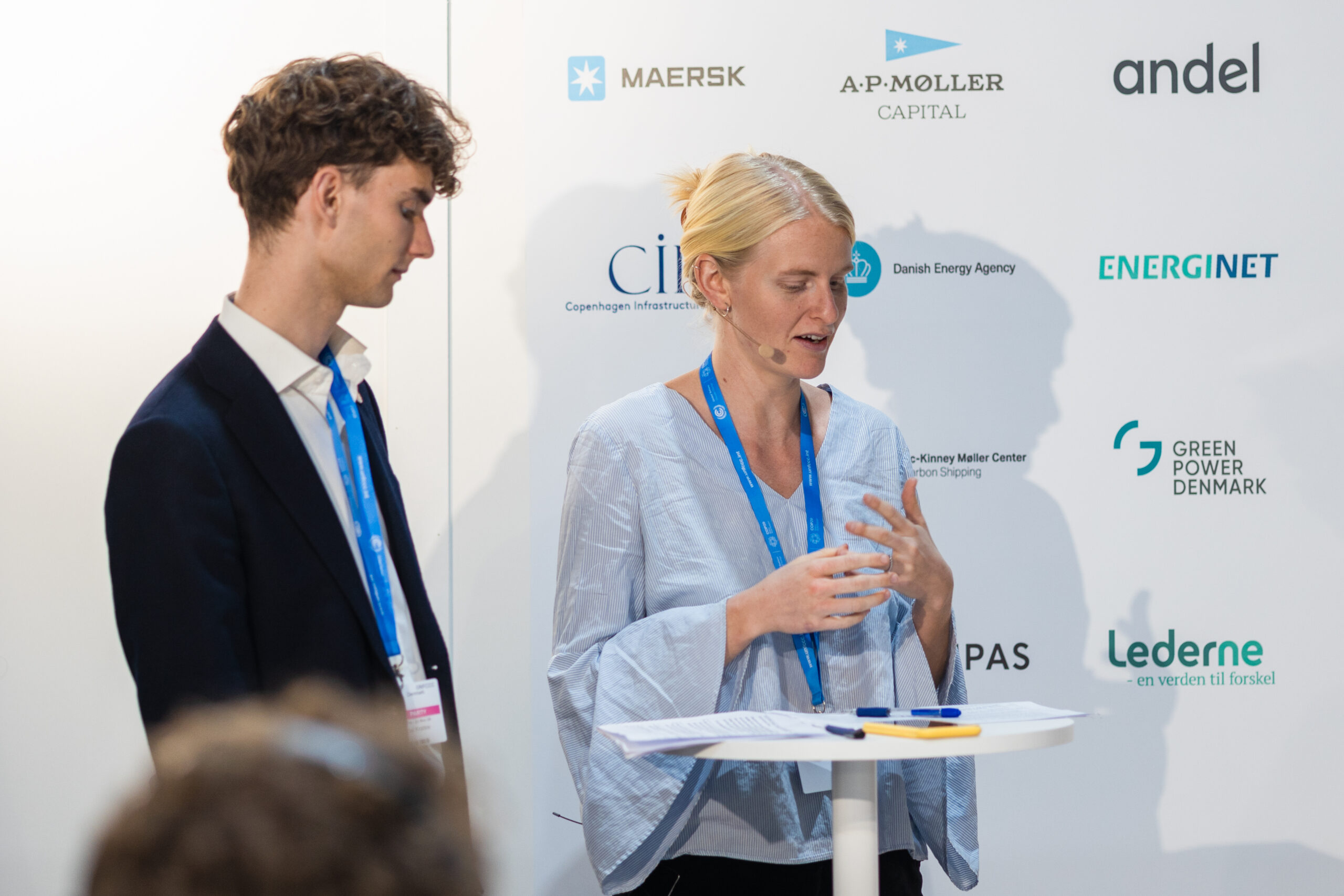
A new era for public-private partnerships
Following the theme of public-private partnerships, World Business Council of Sustainable Development (WBCSD) and State of Green hosted the event Denmark & WBCSD: a new era of public-private cooperation on Wednesday 13 November. At the event, a new partnership agreement was signed by the two organisations with the intent to internationalize the Danish Climate Partnerships. This new joint initiative will strive to replicate Denmark’s model of climate partnerships across other countries and regions, aiming to internationalise Danish climate partnerships in the lead-up to COP30 in Brazil in 2025. The event was moderated by Nott Thorberg, CEO at Green by Island, with speakers Dominic Waughray, Executive Vice President at WBCSD, Concepcion Boo Arias, Head of Global Partnerships & Enablement at Maersk, Nick Mabey, Co-CEO at E3G and Finn Mortensen, Director of State of Green.
Denmark & WBCSD: a new era of public-private cooperation
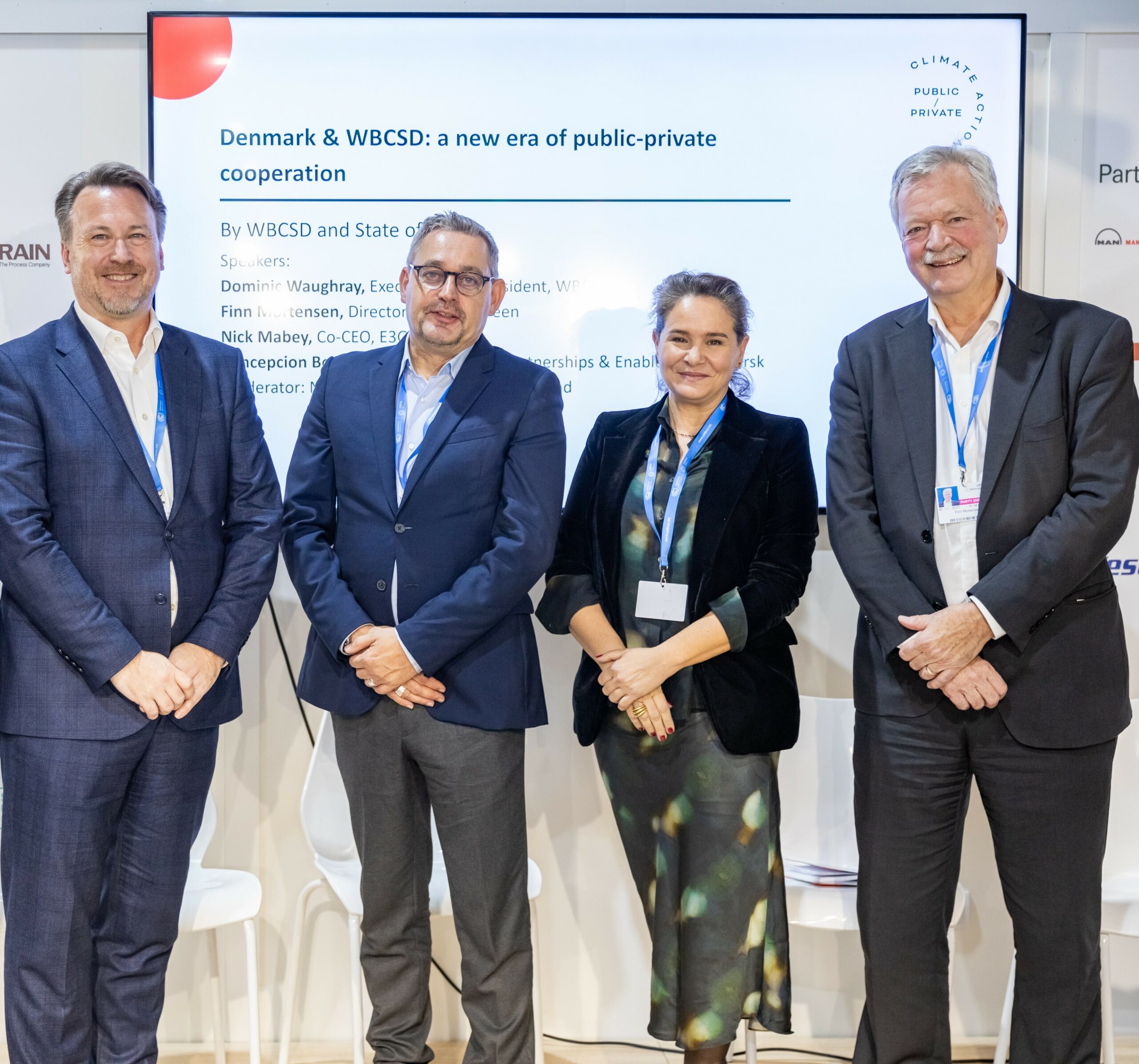
Mobilising climate finance to emerging markets
This COP has by many been dubbed the ‘Finance COP’, which was mirrored in the Denmark Pavilion as eight finance partners joined the pavilion this year. Several events focused on the theme of finance as well, one of them being the Investment Mobilisation Collaboration Alliance (IMCA) event IMCA: a joint Initiative on mobilising climate finance to emerging markets.
Launched at COP28 by the United States and the Nordic governments, IMCA is a platform for establishing blended finance solutions to catalyse investments in climate mitigation, adaptation and nature across emerging markets and developing economies. This event looked back on the first year of IMCA and welcomed two new partners: Iceland, represented by Elín R. Sigurdardottir, Director General of the Directorate for International Development Cooperation at the Ministry for Foreign Affairs of Iceland and the Nordic Development Fund (NDF), represented by Satu Santala, Managing Director, NDF into the alliance.
The other parties of the alliance were also represented: The United States, represented by Lucas Isakowitz, REFS Senior Climate Finance Advisor, USAID, Finland, represented by Pasi Hellman, Under-Secretary of State for Development Policy, Ministry of Foreign Affairs of Finland, Sweden, represented by Erik Korsgren, Acting Director at the Department for Trade, Private Sector and Financial instruments SIDA, Norway, represented by Hans Olav Ibrekk, Special Envoy, Climate and Security, Section for Energy, Climate and Food Security, Norwegian Ministry of Foreign Affairs
Ultimately, Denmark was represented by Jesper H. Andersen, Chief Consultant at the Department of Green Diplomacy and Climate, Denmark’s Ministry of Foreign Affairs, Ole Thonke, Undersecretary for Development Policy at Denmark’s Ministry of Foreign Affairs, and Kim Kehlet Johansen, CEO at Velliv. The event was moderated by Matsi Modise, Strategic Partnership & Africa Lead, World Climate Foundation.
IMCA: a joint Initiative on mobilising climate finance to emerging markets
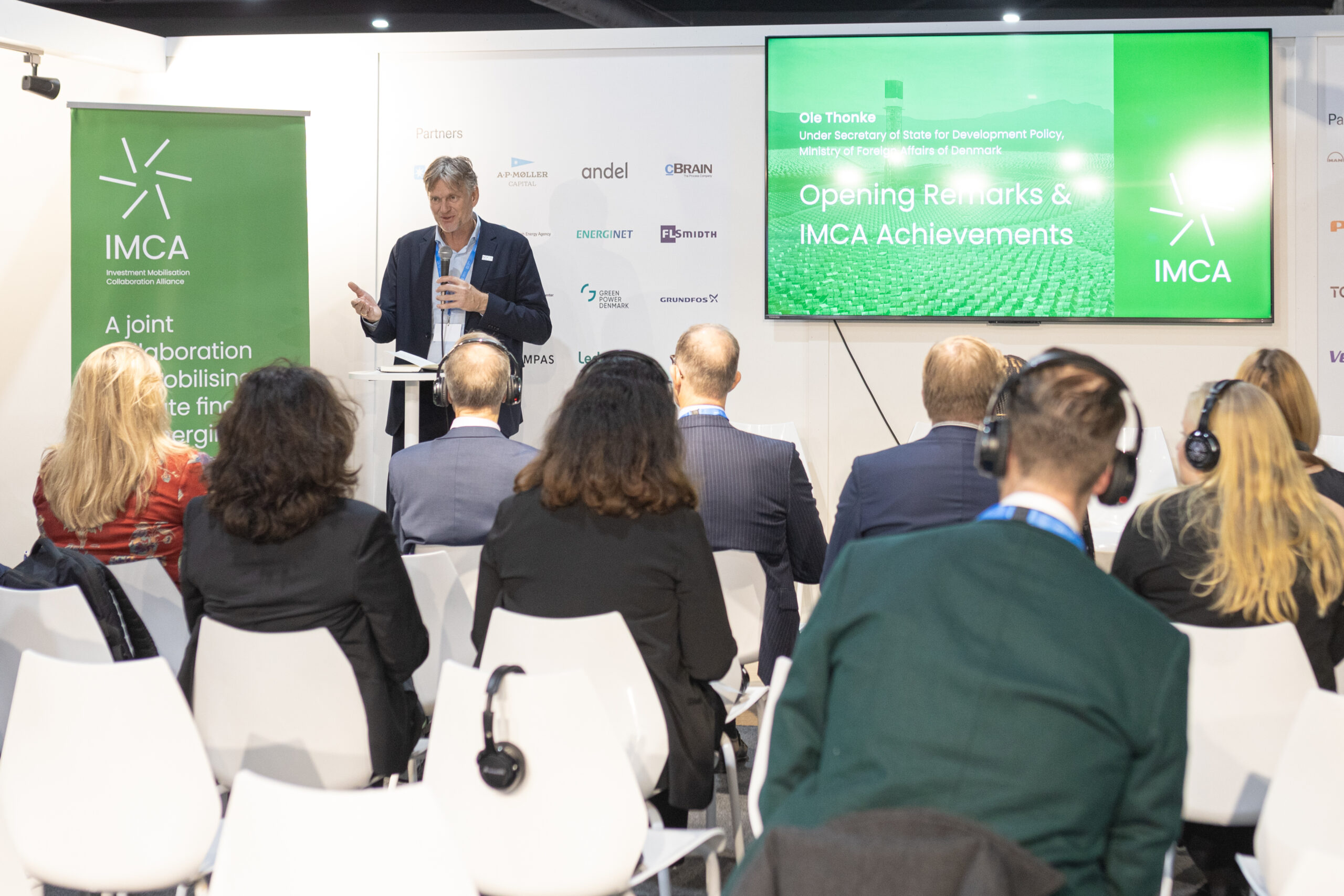
A make-or-break moment for shipping
With COP being a unique opportunity to discuss all aspects of climate and green transition the events of Denmark Pavilion covered a variety of themesand sectors. One of these were decarbonisation of the hard-to-abate-sector, such as the shipping industry.
A significant organisation in this sense is Danish shipping giant, A.P Møller Mærsk, which hosted the event: A make-or-break moment: the role of regulation in the green transition of shipping. The event focused on the importance of implementing a global pricing mechanism for GHG emissions. The mechanism is vital to creating investment in renewable energy, reducing emissions, and ensuring a fair transition to green fuels while protecting the global supply chain.
The event was moderated by Concepcion Boo Arias, Head of Global Partnerships & Enablement, Maersk and the panel consisted of Arsenio Dominguez, Secretary General at the International Maritime Organization, Asami Miketa, Head of Energy Transition Planning at IRENA, Fredrik Nilzén, Head of Sustainability at Scania, Meg Gentle, Executive Director at HIF Global and Morten Bo Christiansen, EVP and Head of Energy Transition at A.P. Moller – Maersk
A make-or-break moment: the role of regulation in the green transition of shipping
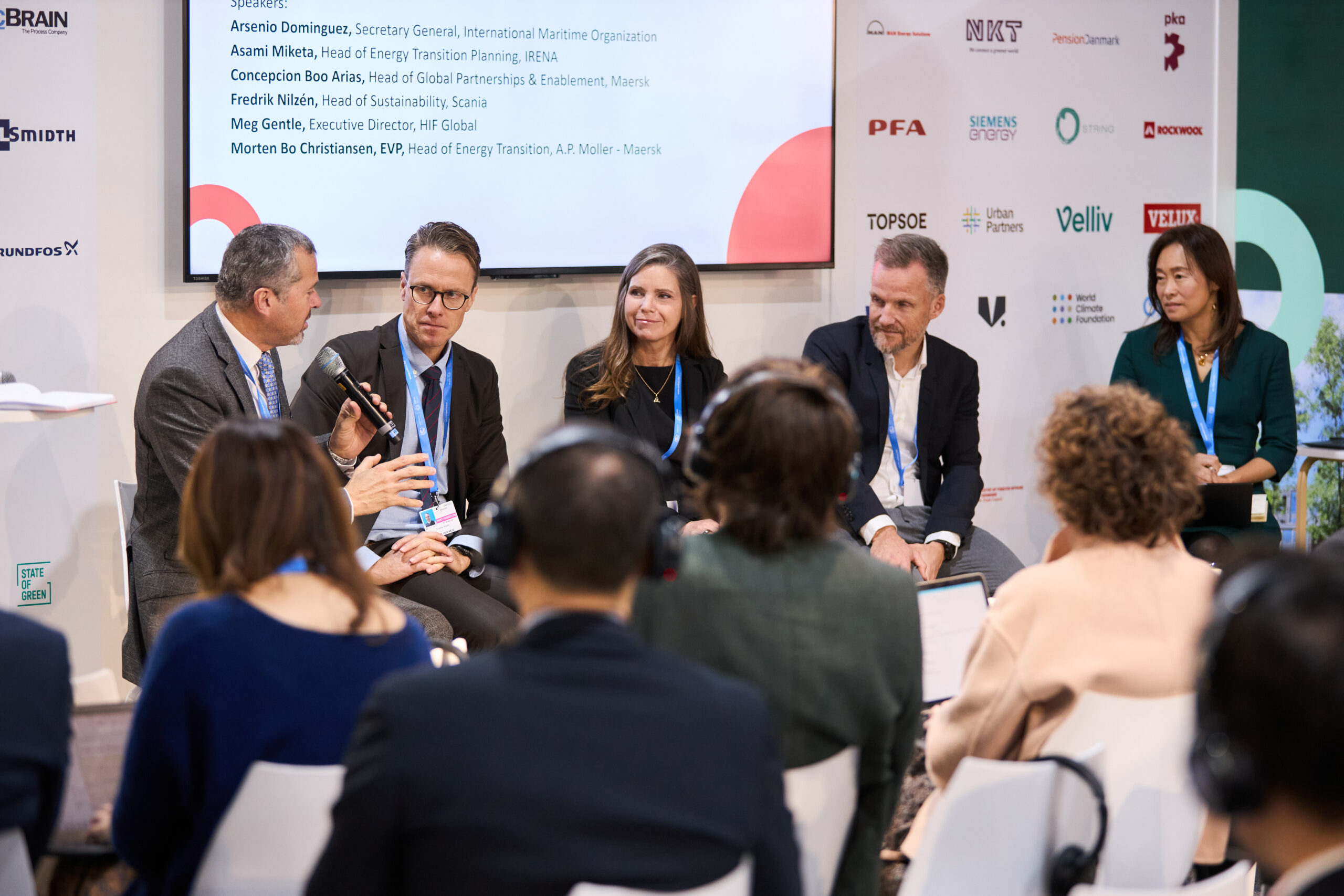
On the last day of the Denmark Pavilion, Wednesday 20 November, UNEP Copenhagen Climate Centre (UNEP-CCC) hosted the event, Breaking capacity barriers: City-to-city collaboration to strengthen urban climate response and scale nature-based solutions.
Here, an extensive panel discussed how nature-based solution barriers can be addressed by city governments and the opportunities to learn and build capacity on nature-based solutions via city-to-city collaboration.
The panel was moderated by Henry Neufeldt, Head of Section, Impact Assessment and Adaptation Analysis at UNEP-CCC. The panel consisted of Jóna Olavsdóttir, Programme Coordinator, Nordic Council of Ministers at the Faroese Environment Agency, Marina Marçal, Head of City Diplomacy and Advocacy at C40 Cities, Peter Normann Vangsbo, Head of Innovation Centre Denmark, Robert C. Brears, Founder of Our Future Water, as well as editor and author on Water and Climate Resilience.
Breaking capacity barriers: City-to-city collaboration to strengthen urban climate response and scale nature-based solutions
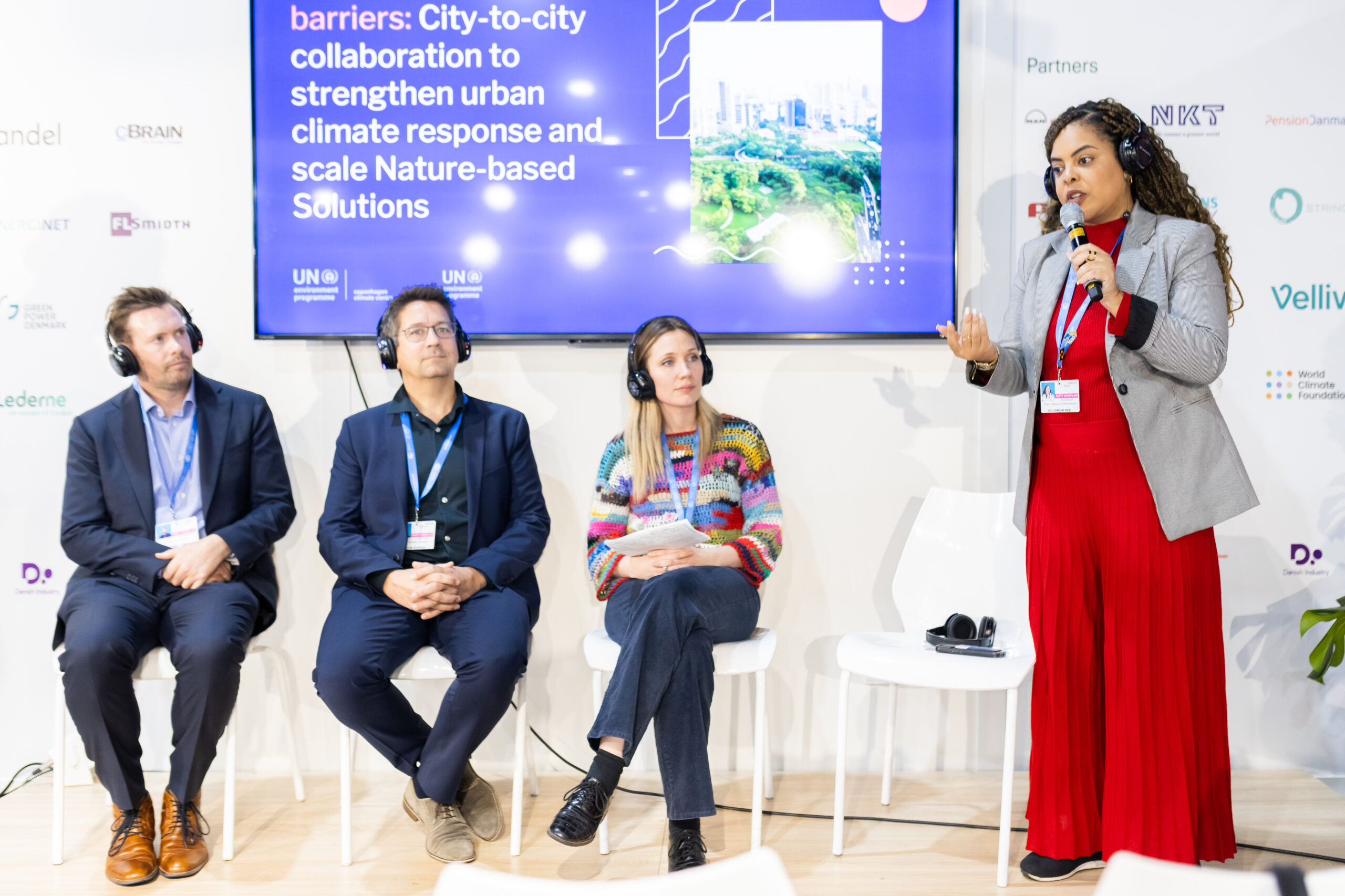
Bye bye Baku, bom dia Belém
After many good discussions, talks and new partnerships and alliances being formed, we are already looking forward to next year’s COP30 in Belém, Brazil.
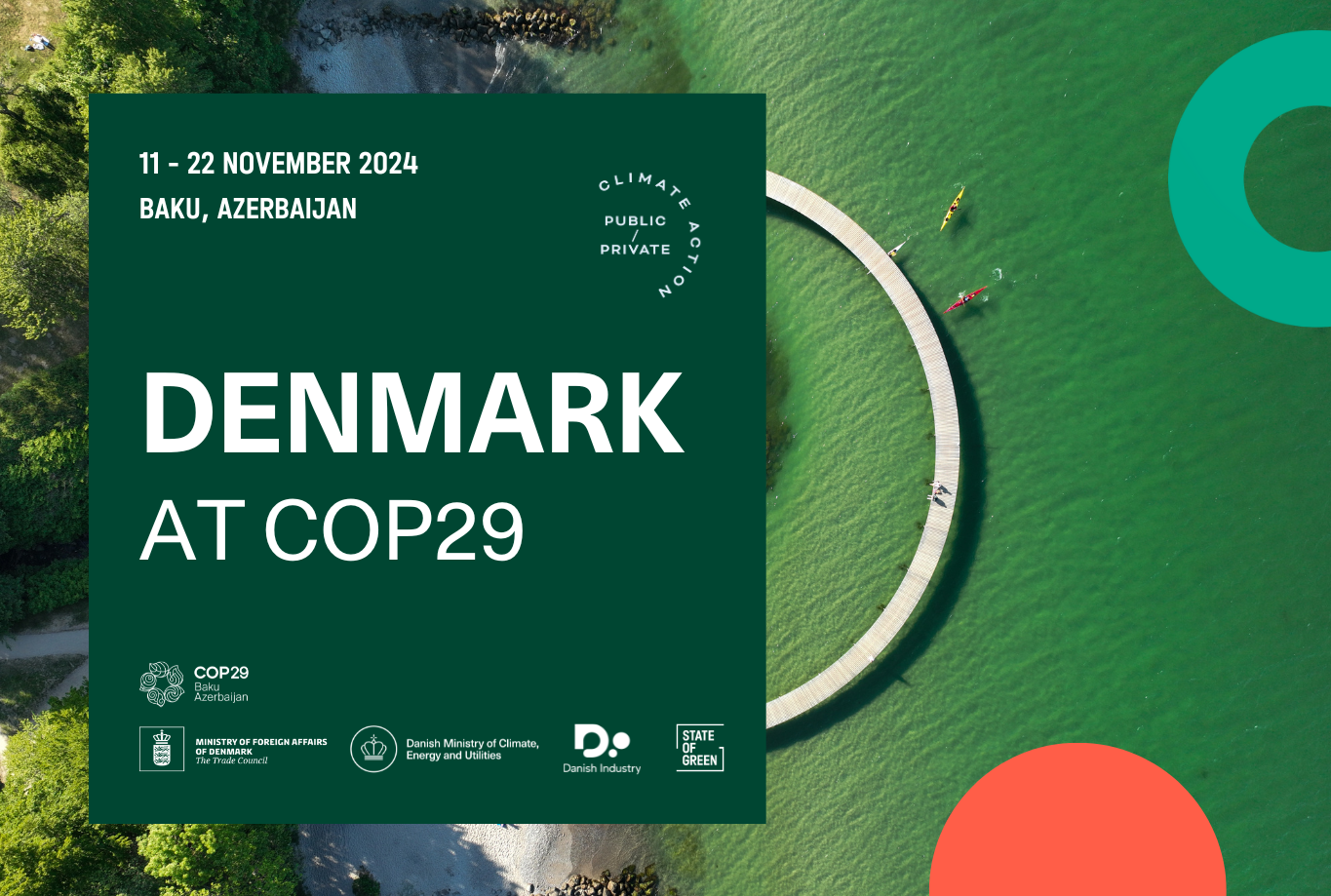
Denmark pavilion at COP29
Denmark Pavilion was organised by Danish Industri, the Danish Ministry of Foreign Affairs, the Danish Ministry of Climate, Energy and Utilities and State of Green. The partners of the pavilion was A.P. Møller – Mærsk, A.P. Møller Capital, Andel, cBrain, Copenhagen Infrastructure Partners, FLSmidth, Fonden Mærsk Mc-Kinney Møller Center for Zero Carbon Shipping, Green Power Denmark, Grundfos, Kompas Management, MAN Energy Solutions, NKT, PensionDanmark, PKA, PFA Pension, Siemens Energy, STRING Megaregion, ROCKWOOL, Topsoe, Urban Partners, V.Group, Velliv, VELUX, Vestas, World Climate Foundation, Ørsted, IDA, the Danish Energy Agency, Energinet, Lederne and Food Nation.

